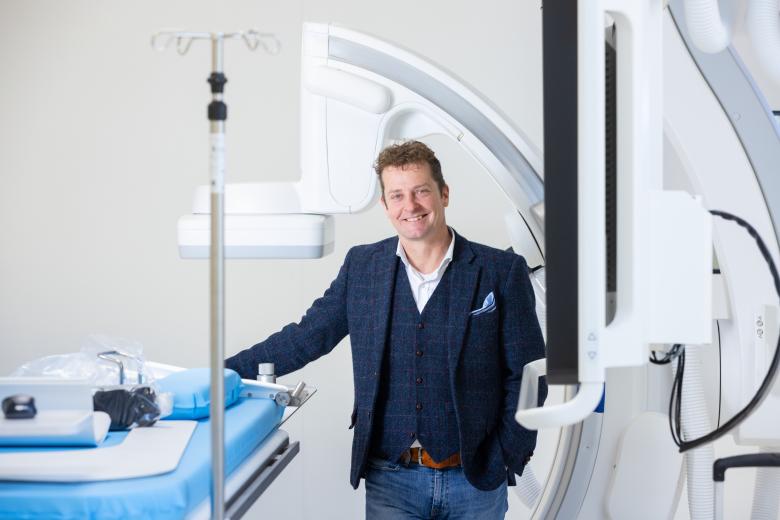‘Power to the farmers’
Desertification may still seem like a far-off scenario for Dutch farmers, but it is a growing problem worldwide. The use of pesticides in agriculture, as well as the focus on monoculture, is depleting farmland to the point that it becomes lifeless land and ultimately desert. UM students Vincent and Laura Nieboer, inspired by their father, came up with an accessible concept to help farmers worldwide stop this process. They recently pitched their idea at the ‘Little big talks’ on the occasion of the celebration of 80 years of materials science and innovation at the Brightlands Chemelot Campus in Sittard-Geleen.
The depletion of agricultural land, which results in lower food yields, is not yet on everyone’s radar as a major problem. But it is one, as brother and sister Nieboer told the jury of the ‘Little big talks’. “Forty per cent of the world’s farmland is depleted and the UN predicts another 60 harvests until the land is exhausted if we continue along the same lines”, said Laura Nieboer, referring to a statement by the UN Food and Agriculture Organization . She has just successfully completed two UM master’s degrees: International Business, with a specialisation in Entrepreneurship, and Public Policy & Human Development. Vincent Nieboer is a master’s student in Biobased Materials and took the audience through the chemistry side of their idea.
Three main ingredients
That idea revolves around three main ingredients that you should add to degraded land in order to stop or even reverse desertification. And the most interesting part of their idea is that all three of those ingredients can be easily made by farmers anywhere in the world from waste materials that are also readily available, such as human hair. ‘Power to the people’ is an ideal shared by these two, whose idealism was cultivated at home. Laura: “Concern for the world around you has always been an important value in our home.” Last summer, father Nieboer stopped working as a transition manager for a multinational in order to create a sustainable food forest. Laura: “Since then, we have had more discussions at the kitchen table about sustainable agriculture, food safety and biodiversity—the foundations of our lives.” (text continues below photo)
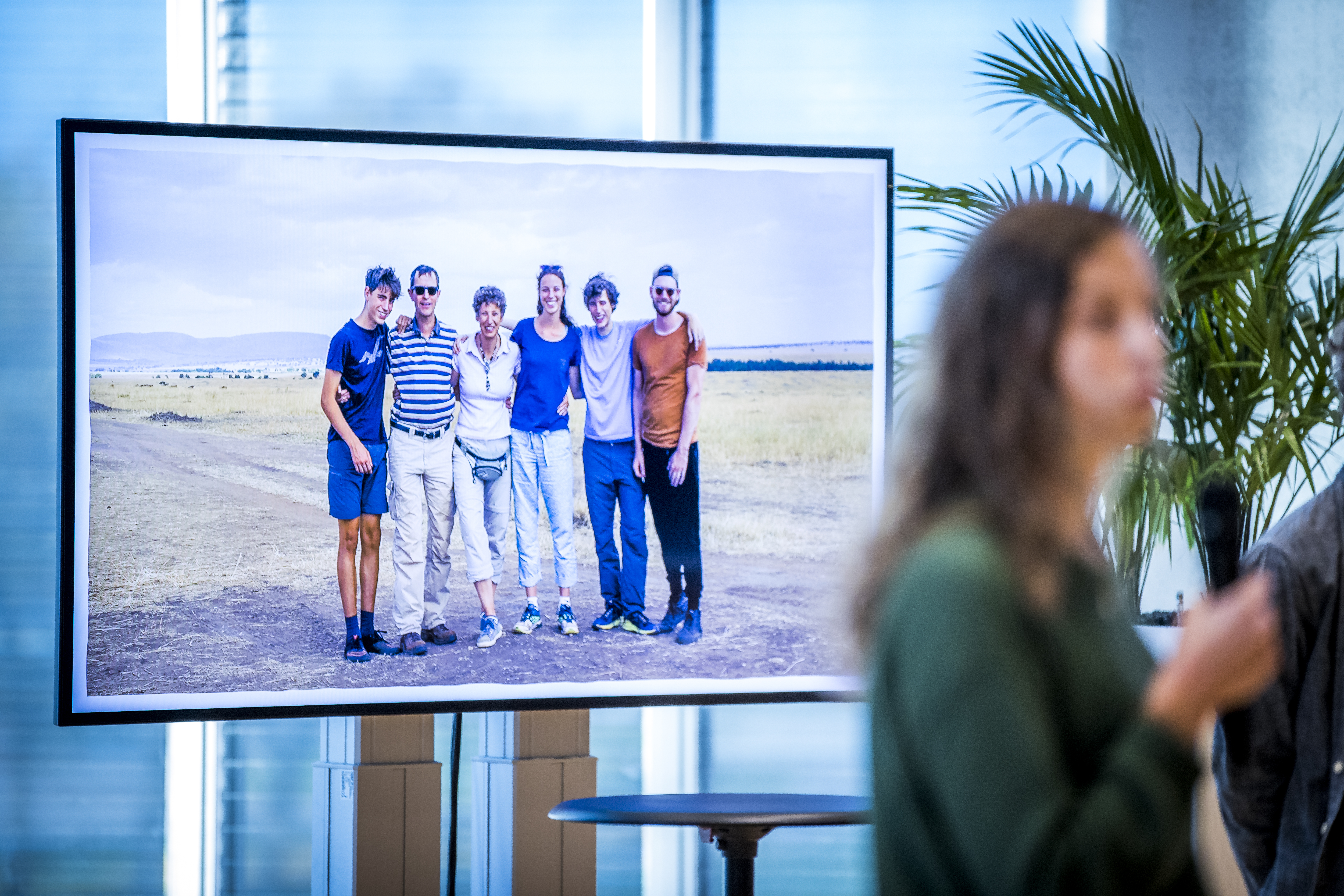
Not a criticism of farmers
Vincent came across two of the three main ingredients as he searched for ways to speed up or improve the yields of a food forest for his father. And thus, their idea was born.
They think it is very important to emphasise that their vision is not a criticism of farmers. Vincent: “It is not their fault that farmland is being exhausted. It is the fault of the system, which is based on outdated knowledge.” Laura: “It is distressing to see that farmers work so hard and can barely make ends meet. We ultimately hope to be able to help them with our concept.” Better harvests with less fertilizer and land that remains usable for longer—that should be the result.
What do they still need?
A lot of research needs to be done before that happens. The three ingredients in their concept (protein hydrolysate, biochar and hydrogel) have been scientifically studied separately for effectiveness, but not in combination. They need a piece of land for this, preferably in the region, on which food has previously been grown so they can test the combination. They want to keep the process of making the ingredients as simple and nature-friendly as possible. It remains to be seen what the best way is to offer this knowledge to farmers worldwide. Therefore, financial support for the project is also very welcome. Laura: “This year, we want to test on a piece of land and to be able to say whether our idea is workable or not. It could also fail; that’s part of entrepreneurship.” Vincent: “The reactions to our Chemelot pitch were very enthusiastic, so that’s encouraging in any case.”
Laura Nieboer (24) got her bachelor's degree at University College Maastricht, after which she completed two UM master’s degrees: International Business, and Public Policy & Human Development. She is currently working at Sabic on the transition to a circular economy and she is working on her future as a sustainable entrepreneur.
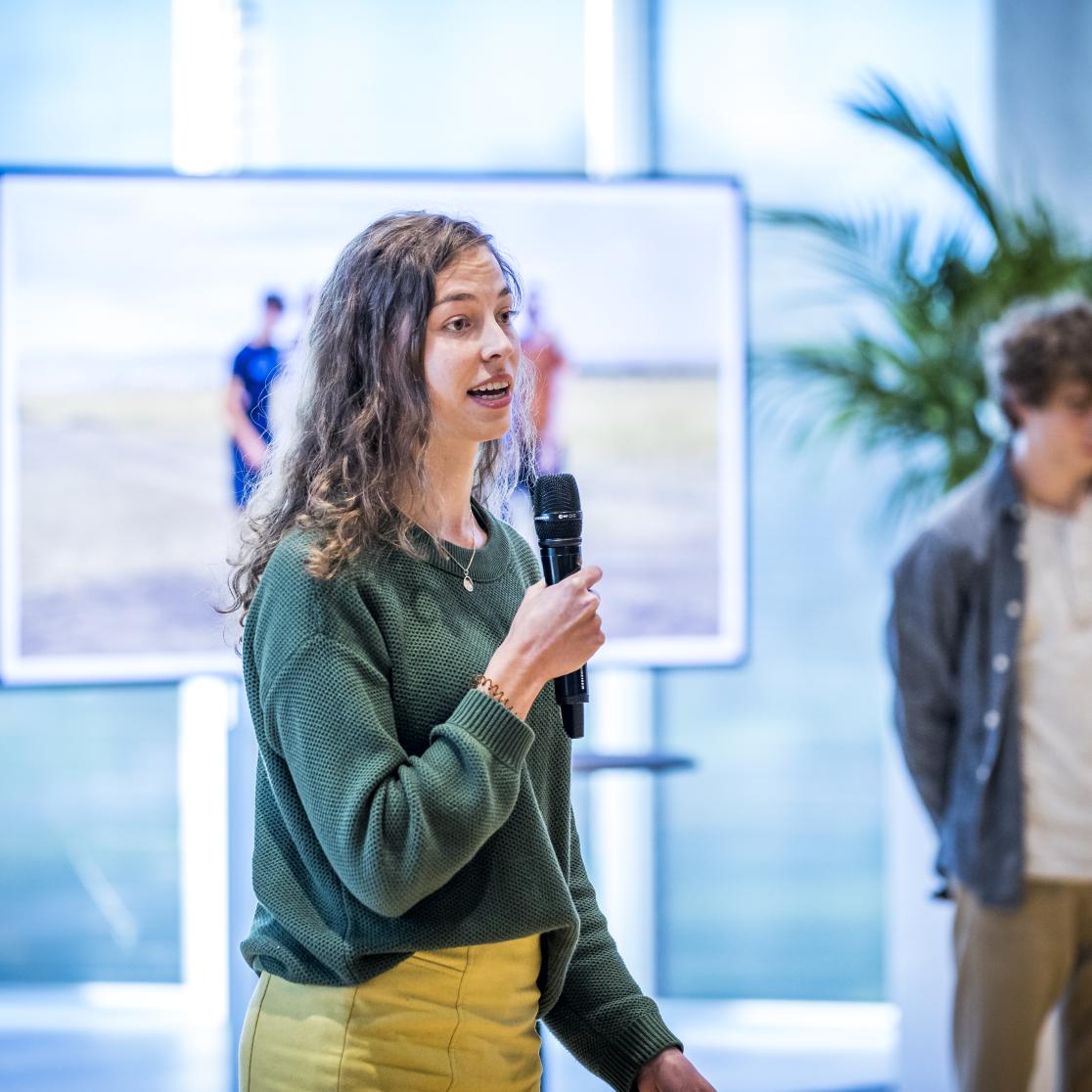
Vincent Nieboer (22) got his bachelor's degree from the Maastricht Science Programme, and then began the master's programme in Biobased Materials. He is currently working on his final thesis, for which he is conducting research at the Chemelot campus on making peptides.
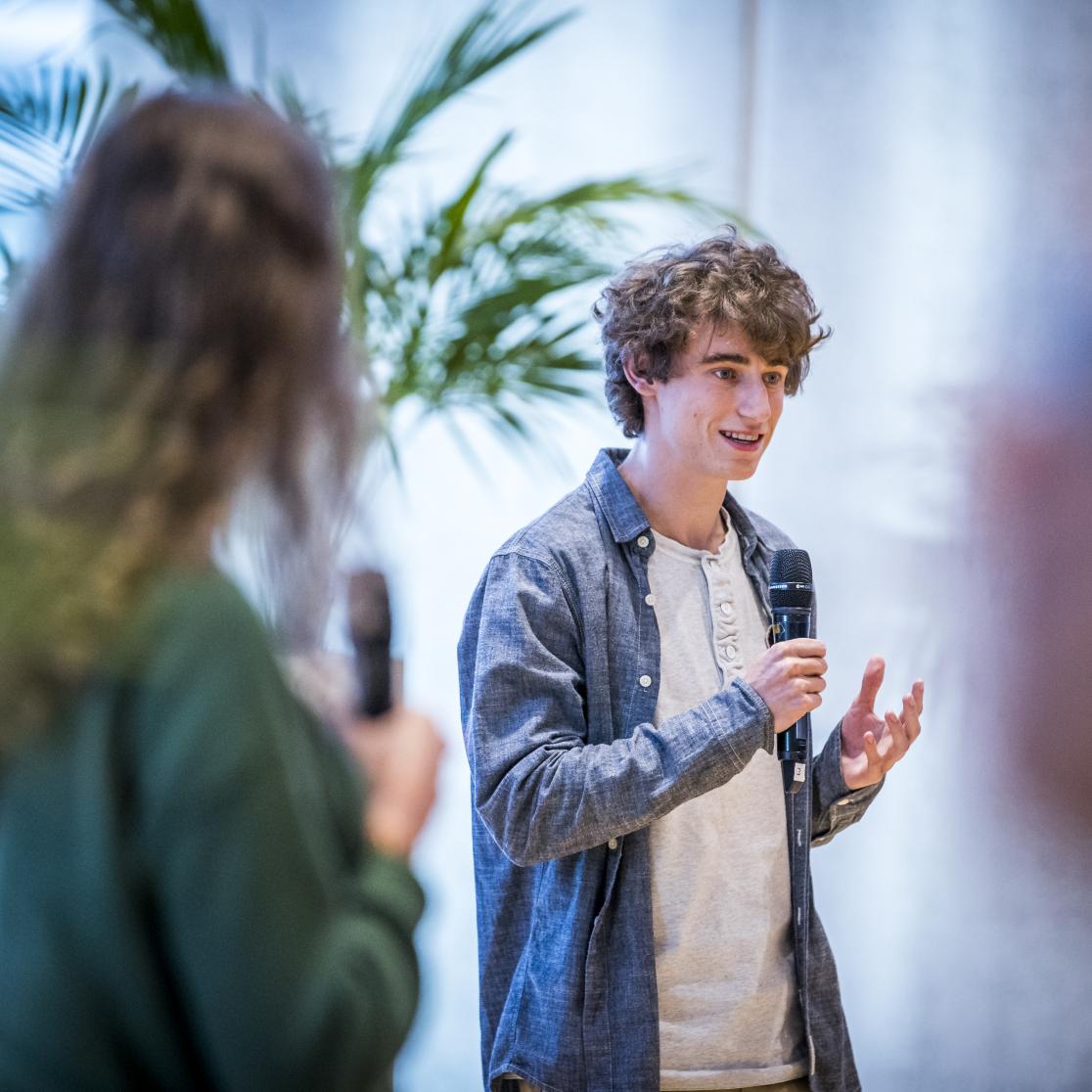
Also read
-
Working at UM: “a life-changing experience”
"I am proud that our new Circular Plastics group published its first completely in-house research," Kim Ragaert says. She founded the research group three years ago, when she moved to Maastricht. Her work has laid the foundations for many innovations in the field of plastic recycling, and she is...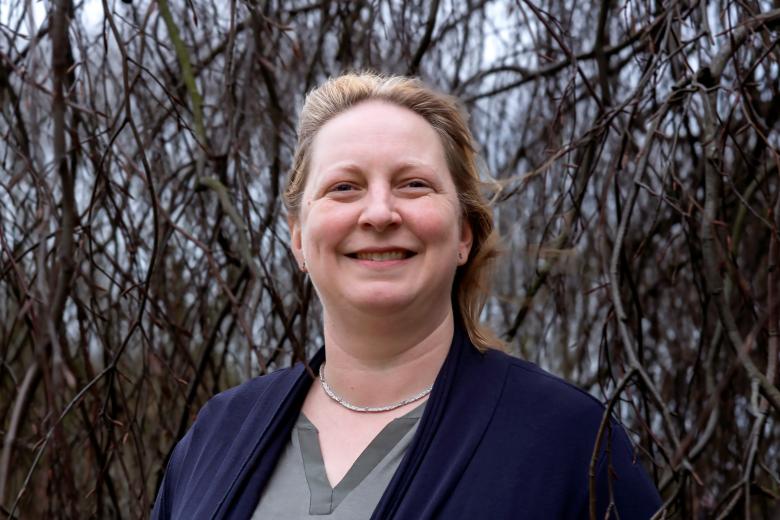
-
How does the universe taste?
Gerco Onderwater investigates the flavour of the universe while guarding the flavour of the Maastricht Science Programme. On 31 May, during his inaugural lecture, he provided a pre-taste of his work in Maastricht.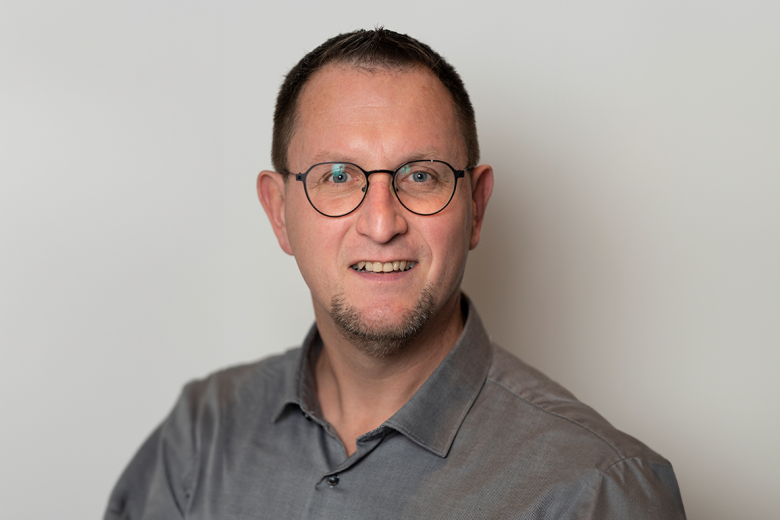
-
Bridging the gap between technology and clinical practice
Lee Bouwman, a vascular surgeon and endowed professor of Clinical Engineering, specialises in the implementation of groundbreaking healthcare technologies. The key to success, he says, lies in the collaboration between engineers and clinicians. This approach has already resulted in a range of...